Personal details
Ronald Matthijs Lenz
married to Audrey Wei-Yun, 1 daughter Sophia Grace Mei
born 11 april 1974
Contact
ronald [at] waag [dot] org, ronald [at] 7scenes [dot] com, @rlenz
Address
Antonie Heinsiusstraat 17, 2582 VP, Den Haag, The Netherlands
Education
Degree Chemical Engineering at Delft University, The Netherlands
many courses in software engineering.
Languages
Dutch (native), English (spoken/written excellent), German (spoken/written average), Spanish/Italian (spoken/written amateur).
Networks
LinkedIn, Facebook, Twitter, Picnic, YouTube
Work Experience
- Managing Director at 7scenes (jan ’11 – present)
- Creative Director at 7scenes (june ’07 – dec ’10)
- Founder and Manager Urban Reality Lab – Locative Media research programme at Waag Society (’05 – sept ’11)
- Head Software development at Waag Society (’04 – ’07)
- Program director open source platform KeyWorX at Waag Society (’04 – ’07)
- Software Engineer at Waag Society (’02 – ’04)
- Freelance software engineer (’01 – ’02)
- Software Engineer / Consultant at Logica (’98 – ’01)
7scenes
Mobile technology company that builds a platform for GPS games and tours. More: www.7scenes.com.
Waag Society
Amsterdam based medialab that researches by developing prototypes and pilots to find social innovation in education, healthcare, sustainability, arts & culture and the public domain. More: www.waag.org
Logica
Consultancy firm that works in many international industry sectors. More: www.logica.com
Workshops
Some highlights…
Hong Kong Design Institute, Hong Kong dec ’11
Mobility Shifts conference, NYC oct ’11
Futur en Seine, Paris, june ’11
Masterclass, VTC, Hong Kong aug/sept ’10
Masterclass, VTC, Hong Kong march ’10
Masterclass, Parsons – The New School for Design, NYC october ’09
Augmented City Lab – PICNIC ’09
PICNIC Salon NYC ’09
Locative Lab: Cultural Heritage – PICNIC ’08
Locative Lab: Education – PICNIC ’08
Mobile City workshop – PICNIC ’07
Location-based Play workshop – PICNIC ’06
Sarai – Locative Media workshop ’06
Sustainable Mobility
Virtueel Platform – Art mediated by technology
Ycom
GeoFort
Festivals & events
PICNIC ‘11
PICNIC ‘10
WCIT ’10
PICNIC ’09
PICNIC ’08
Come Out & Play @ Picnic ’07 (trailer clip)
MobileMusicWorkshop ’07
PICNIC ’07
PICNIC ’06
Publications / Interviews
Control Magazine – GATE special – Citizen Science for smartphones
The 12th International Symposium on Virtual Reality, Archaeology and Cultural Heritage VAST (2011)
Geo-Info #7/8 (aug ’10)
Second Sight magazine – a New City. (apr. 10)
FutureLab interview/podcast (7scenes) oct ’09
Emerce july ’09 (7scenes)
Cannes Lions – AT5 june ’09
Campus Party ’09 – Sao Paulo
newTV Brazil
PhocusWright / Travdex @ ITB ’09 (Berlin)
Ming Pao Weekly – Hong Kong (Re-architect)
Georeport (7scenes)
Automatiseringsgids (Frequency 1550)
Awards & nominations
Nomination Accenture Innovation Award ’11
‘Seal of Approval’ – Erasmus Euromedia Awards ’09 (The Island)
‘Seal of Approval’ – Erasmus Euromedia Awards ’08 (Games Atelier)
Oeuvreprijs Prins Bernhard Cultuurfonds ’08 (Yo Opera)
IPON Award ’10 (Games Atelier)
Gouden Kans – Syntens (7scenes)
Webby honoree ’09 (7scenes)
World Summit award nominee ’09 (7scenes)
Spin Award ’08 (Frequency 1550)
Comenius EduMedia Medaille ’06 (Frequency 1550)
Erasmus EuroMedia Sonderpreise ’06 (Frequency 1550)
Presentations
Some highlights… (also see http://www.slideshare.net/rlenz)
GATE Symposium, feb ’12
Business of Design Week ’11, Hong Kong dec ’11
Mobile Learning @ Cap Digital / Compas Group, Paris – march ’11
Innovation in broadcasting – NOS – march ’11
NPOX festival – sept ’10
Mobile Learning in Hong Kong – aug/sept ’10, VTC, Hong Kong (slideshare)
WCIT’10 – Creative Industries track (slideshare)
Visible Cities @ Trouw, Amsterdam
Mobile Learning in Hong Kong – march ’10, VTC, Hong Kong (slideshare)
Maps are magical, Items Live @ Pakhuis De Zwijger (slidehare)
A New Cultural City Design @ DISH, Rotterdam (slideshare)
Designing the Augmented City @ Willem De Kooning academy, Rotterdam (slideshare)
Designing the Augmented City @ Parsons – The New School for Design, NYC (slideshare)
The Island @ Picnic ’09 (slideshare)
Universidade Anhembi Morumbi, Sao Paulo ’09.
Global Gincana @ Mobilefest ’09, Sao Paulo (slideshare)
Surf Summerschool ’09 (slideshare)
Picnic Salon NYC ’09 (slideshare, clip)
Joint Venture @ Pakhuis De Zwijger ’09
GSDI ’09
NLGD ’09 (slideshare)
PhoCusWright Berlin ’09 (slidehare)
Australian International Documentary Conference (AIDC) ’09 (slideshare)
Mobile Monday feb ’09 (slideshare, clip)
Campus Party ’09 – Sao Paulo
Uitmarketing congres Noord Brabant ’08
Toeristische Netwerkdag Noord Holland ’08
Mobile Advertising summit ’08
Picnic ’08 (Games Atelier)
The Web and Beyond ’08
Where 2.0 ’08 (San Francisco)
FutureSonic ’08
The Mobile City conference ’08
Amsterdam Innovatie Motor ’07 (AIM)
Space Between ’07
Picnic ’07 (7scenes launch)
Locative Media Killerclub ’05 (slideshare, clip 1, clip 2)
Projects
Augmented City Lab @ Picnic
A full day event at the annual Picnic festival in Amsterdam about future scenarios of the Augmented City. The event had both presentation and discussion sessions as well as prototyping sessions. Full report on www.augmentedcity.org
Treemagotchi
Full mobile report on future mobile strategies for Treemagotchi, an online service and social network stimulating eco-friendly actions. Unfortunately the report is confidential, but would benefit many companies starting in the mobile domain.
Verdronken Landschap
Developing touristic mobile tours uncovering the hidden landscapes and ‘sunken’ villages of West-Brabant with the BKKC.
Diamant museum Antwerpen
Creating a game and tour exploring the diamond history and industry in Antwerp together with youth organization Piazza del’Arte.
De Stad Geschonden
The Hague Historic museum develops 5 tours in The Hague showing its second world war history at the locations where all took place.
Levend Museum
The Westergasfabriek in Amsterdam sees her park as a Living museum and therefore develops several mobile tours for this former gas factory field.
Cannes Lions game
During the Cannes Lions festival ’09 a multi-disciplinairy team of Dutch creatives developed a mobile event combining advertising, culture, design and gaming. Using GPS platform 7scenes, the team let a new form of advertising come to life where people interact with locations in the city of Cannes using their mobile phone. The concept was showcased directly the day after its creation and experienced by a a select crowd. What will advertising be when you’re mobile, always online and your surroundings respond to you? More: http://canneslionsgame.wordpress.com/, video
The Island
In 2009, it’s 400 years ago that Henry Hudson crossed the ocean to search for a way to sail through North America. He did not find a way through, but did discover a fertile land that was later called Albany and which we nowadays all know as New York. The Island is a game-based adventure in which the players will have to fulfill assignments together to get to the next level. By using mobile technology and an online gaming platform they will participate in a joint hunt for information and stories – online and on the street. The aim is to visualize the historical links between The Netherlands and the United States for pupils of secondary education, and to re-live the past. In innovative ways history, culture education and cultural exchange will be brought together. More: http://waag.org/project/island, www.playtheisland.org, scenario and video.
The Mystery of the Colonel’s Ghost
At the 2009 Adelaide Fringe festival the Urban Game The Mystery of the Colonel’s Ghost transformed the Adelaide streets into a treasure hunt playground. Players were taken on a journey that transports them back into time when Colonel Light first designed the city of Adelaide. Using GPS-equipped mobile phones and a treasure map participants played the game in which they interacted with other players, locals and features in the environment, based on their GPS location and slowly but surely could see the Colonel’s mystery unfold. More: http://waag.org/project/colonelsghost, www.colonellight.org and the video.
Tijdmachine (Timemachine)
7scenes was used for an application called Timemachine by Land van Leeghwater, a locative project through the new land of Beemster and Schermer in the province of North Holland. With Timemachine, visitors can follow a tour by car and trace the history of the Golden Age and the time of Leeghwater. The route can be followed on the map, while audio fragments explain the historical facts. The route is available from the local tourist offices, but is at the moment only available in Dutch. More: Land van Leeghwater website and video.
Re-architect
Re-architect is a game on urban design, play and transformation. The game takes players on a photographic treasure hunt along the architectural past, present and future of a city. As the game unfolds players are asked to respond to design principles, investigate their surroundings and photograph the city from different architectural perspectives. More: http://waag.org/project/rearchitect, www.re-architect.org and video.
Global Gincana
Global Gincana is an educational project on cultural exchange that explores the impact that multi-ethnic societies of Brazil and The Netherlands have on cultural themes such as music & dance, language, fashion, habits & rituals and design & art.The format of the project is inspired by gincana, a traditional Brazilian collective game in which collaboration and competitive spirit are crucial to succeed. Participants are challenged to undertake different tasks, such as finding specific objects or information, sporting, cultural tasks and artistic skills to collect points. More: http://waag.org/project/globalgincana, www.globalgincana.org and video.
Fort Amsterdam
Fort Amsterdam is a GPS-based multi-player game played with mobile phones, in which players get transported back 400 years to a time when New York was called New Amsterdam. Fort Amsterdam was a fort on the southern tip of Manhattan that marked the official founding of New York City with a mission of protecting the New Netherland colony operations in the Hudson River against attacks of the English and the French. More: http://waag.org/project/fortamsterdam, http://www.fortamsterdam.org and video.
The Singing Town / De Zingende Stad
De Zingende Stad (The Singing Town) is a vocal, interactive multimedia art project. A tool which can be used by children, their parents, youngsters, tourists – actually everybody – to enrich to everyday environment with their own virtual sound-signature. More: http://www.waag.org/project/zingendestad
Games Atelier
Games Atelier is a new educational tool, to be used in secondary education in The Netherlands. Within Games Atelier, pupils can can create, play, share and view their own locative mobile games with GPS equipped mobile phones and an internet application. Creative and playful use of technology will motivate and stimulate pupils and will enhance the learning effects. The first game was played 14 March 2008 by the mayor of Amsterdam, Job Cohen. In August, Games Atelier will be available to all secondary schools in The Netherlands. More: http://waag.org/project/gamesatelier and video.
City Ragas
The Amsterdam India Festival was held from 12 until 30 November 2008 on more than 20 locations in Amsterdam. Waag Society organized City Ragas, a locative game played simultaneously around the Nieuwmarkt square in Amsterdam and in Delhi, India. Theme of the festival was Blended Cultures, pointing at the diversity of cultures living in India, but also can be found in Amsterdam. Photography was used as a means of visual communication to bypass limitations posed by verbal language and the written word. More: http://waag.org/project/cityragas, www.cityragas.nl
Rituelen
In the Rituals project, people are invited to tell the stories of their personal religious objects, experiences and rituals. These stories are then linked to movable and immovable heritage in museums and archives, at archaeological sites or inside buildings and public spaces by means of location-based mobile technology, among other things. This creates layers of meaning based on the views of other people with regard to our everyday reality. More: http://waag.org/project/rituelen and video.
Mobile Math
In early 2008, the schools Pieter Nieuwland (Amsterdam), Via Nova (Utrecht), Vathorst (Amersfoort) have been piloting MobileMath, a first step into using mobile gaming for maths education in secondary education, developed by the Freudenthal Institute, Utrecht, and the Waag Society, Amsterdam. Students have to score as much points as possible by walking along imagined quadrangles, squares or parallelograms in the area around their schools. They use mobile phones with GPS receivers to upload the corners of the geometrical figures to the game server. At the end of the game the map with the figures is available from the EduGIS portal to be used in class or to be shown to parents and friends. More: http://waag.org/project/mobilemath, www.mobilemath.nl and video.
Digitale Wichelroede
In the Netherlands the available spare time will increase, particularly with the ageing population in mind. This development offers chances but also poses a threat. The threat could be that there are insufficient activities outdoors to fully make use all of this spare time. If compared to 1975, the increase of activities of the Dutch in 2000 was 9% per year (Stichting Recreatie, 2004). For the Dutch economy, is is of interest to create enough ‘supply’ as the risc might become a ‘leisure drain’ to other countries, with all negative economic aspects involved. More: http://waag.org/project/digitalewichelroede and video.
10xFrequency 1550
In 2007 the successful urban game Frequency 1550 was played 10 more times so its educational effects could be measured by the University of Amsterdam and the University of Utrecht. The outcome was astonishing. By combining storytelling, new media at relevant locations with active user participation students would learning sigificantly better than in traditional classroom situations. More: http://waag.org/project/freq1550, video & Publication
MobileMusicWorkshop ’07
Combining music and mobile technology promises exciting future developments in a rapidly emerging field. Devices such as mobile phones, Walkmans and iPods have already brought music to the ever-changing social and geographic locations of their users and reshaped their experience of the urban landscape. With new properties such as ad hoc networking, Internet connection, and context-awareness, mobile music technology offers countless new artistic, commercial and socio-cultural opportunities for music creation, listening and sharing. How can we push forward the already successful combination of music and mobile technology? What new forms of interaction with music lie ahead, as locative media and music use merge into new forms of everyday experiences? The 2007 edition of the workshop was hosted by STEIM and Waag Society in Amsterdam, The Netherlands, and partnered with the Futuresonic Festival in Manchester, England, taking place later the same week. More: http://www.waag.org/project/mobilemusicworkshop, http://www.mobilemusicworkshop.com/2007/, MMW’07 proceedings
Location-based heritage / Museum++
A research program dedicated to seeing the city as an exhibition space focusing on issues around the mobile experience of cultural heritage at city locations.
ParQ
The Solar Melodicus is a metal tree that can live self sufficient. It generates its own energy to stay alive and in balance with its surroundings. It’s a tree that collects your secrets and wishes and spreads them in a melodical way in the park. You can leave you secrets and wishes in several ways: through sms, twitter or add them directly to the tree. The Solar Melodicus reacts on the environment. Depending on the number of people surrounding it, it will turn its volume up or down. It will also react to its energy supply, so it will have to take care of its resources. More: http://waag.org/project/parq
MLGK
“Reality is a virtual world of its own”: that is the main message of the Mobile Learning Game Kit (MLGK). Everyday live and work are an inexhaustible source of information. We process this information frequently without it even noticing it, we process, store and use it to be able move around, to adapt our surroundings to our needs and wishes, or to adapt ourselves to the requirements of our environment. Long before gravitations has been explained to them, children know that an object which you release falls to the ground: they understand what gravitation is because the term is an explanation for their own experience. The MLGK has been developed on the basis of this fundamental learning process. More: http://waag.org/project/mlgk
FutureSonic ’07 georeport
During FutureSonic ’07 we used Geotracing to create a location-based report of the festival posting stories at different locations in Manchester.
BBC – Know Your Place
Know your Place was a pilot for the BBC where Geotracing technology was used to track and interact with tv hosts of a traveling program.
Frequentie 1550
Frequency 1550 is a mobile city game that uses GPS and UMTS technology to let pupils of the secondary schools actively learn about history instead of passively absorb knowledge. The aim of Frequency 1550 is to bring the middle ages alive for pupils, within their history lessons. In 2008, the mobile history games received a SpinAward in the category best gaming concept. More: http://waag.org/project/freq1550 and video
N8spel
During the annual museum night 2005 we organised a competition where teams equipped with mobile phone and gps could draw onto the city and annotate their traces with media. More: http://waag.org/project/museumnight
FruX
Context aware services automatically adapt to the environment of a user, for instance to the location, time, or physical condition (e.g. hart rhythm and blood pressure) of a person. The social context of users is an important determinant for the information needs and well being of people. People are truly social beings. In the FRUX project we explore how such information can be used to design smart context aware group services for two application domains: safety and healthcare. FRUX was part of the Freeband Communication research Program. More: http://waag.org/project/frux
GATE
Within the GATE (Game research for training and entertainment) consortium, Waag Society takes the lead in the Innovative Pilot Healthcare. The pilot healthcare focuses on developing a playful communication system that supports affective communication between people that share a close or intimate connection, but who are not in the same location. The pilot’s primary target group consists of hospitalized children, separated from their family, friends and classmates. Will playful, non-verbal remote communication with loved ones contribute to a child’s well being? More: http://waag.org/project/gate
KeyWorx
KeyWorx was an extensible application framework that has been under development at Waag Society for a number of years. KeyWorx aimed to enable developers to invent, develop, integrate and deploy applications with multi-user/multimedia features. A common aspect of these applications is that they aim to empower users to be the (joint) creators of multimedia content. More: http://waag.org/project/keyworx
VerhalenAltaar (Story Altar)
The Story Altar (Verhalenaltaar) was developed in 2003 by Waag Society in association with the Ons’ Lieve heer op Solder (Our Dear Lord in the Attic) church. The project researched the possibilities of new media for the preservation of cultural heritage. Historian Judith Koelemeijer called this process ’emergency anthropology’: capturing cultural heritage of the 20th century before it disappears because the storytellers get too ill or die. More: http://waag.org/project/verhalenaltaar
OpenCultures
Towards a Culture of Open Networks is a collaborative project between the Waag Society for Old and New Media, Amsterdam, The Sarai Programme at the Centre for the Study of Developing Societies, Delhi and Public Netbase, Vienna enabled by the EU-India Cross Cultural Programme, 2003 under its media, communication and culture dimension. The collaboration is an initiative focused on bridging “Information Society” in Europe and India through Culture and Communication. More: http://www.opencultures.com/
MonsterMedia
Imagine… a wonderful web world where strange creatures live. They are media monsters, they feed themselve with signs, sounds and images. The media monsters grow, learn, make fun, make trouble and are afraid of nothing, although, maybe…’ Thus begins ‘Monstermedia’, an online media education tool for the highest classes of primary education. Monstermedia stimulates media awareness with children. More: http://www.waag.org/project/monstermedia
Drawing of Today
Drawing of Today was a cooperation between Waag Society and the artists Ram Katzir and Yariv Alter Fin. Lines Online is a virtual environment on the internet. Here, visitors can create and collaborate is a simple, accessible way. The concept is to stimulate creation, working and playing together and using so-called ‘naive’ media. More: http://www.waag.org/project/linesonline
Nieuwsflits! (Newsflash!)
Nieuwsflits! (News flash) was an online editing tool for primary schools, that could be used in the Persmuseum in Amsterdam. Children were able to create and edit newspages, that were published online. More: http://www.waag.org/project/nieuwsflits
KidsEye
KidsEye is an online multimedia environment that allows children to be the main editors within educational projects. Children could use KidsEye to put articles together, publish them and comment on the input of others. More: http://www.waag.org/project/kidseye




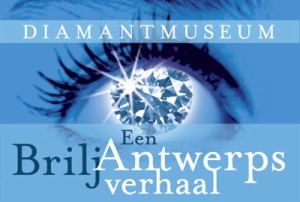
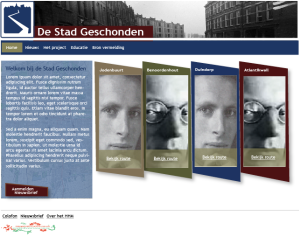
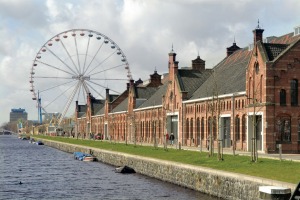





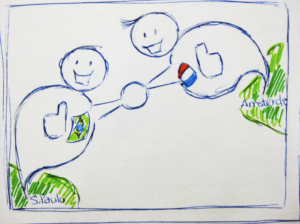




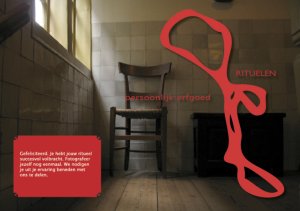





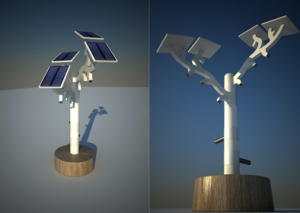
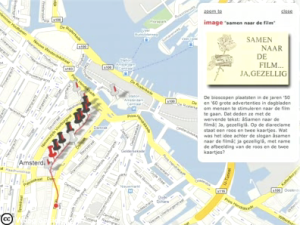

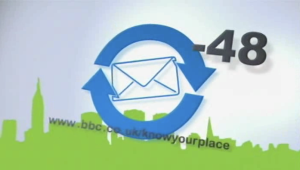


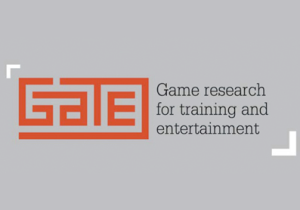


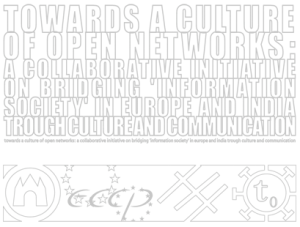

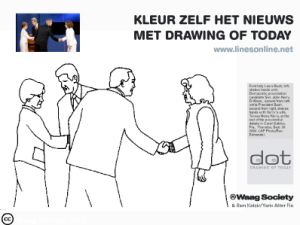
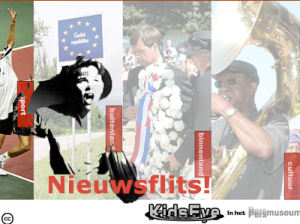
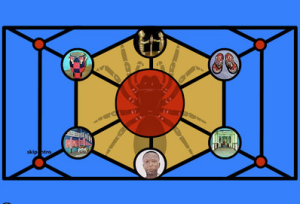
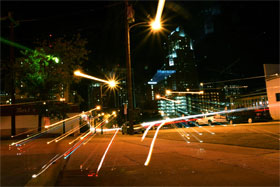 LocativeLab.org is Ronald Lenz's research website on locative & mobile media. This is mostly an archive of blogposts I find inspiring and interesting and an
LocativeLab.org is Ronald Lenz's research website on locative & mobile media. This is mostly an archive of blogposts I find inspiring and interesting and an 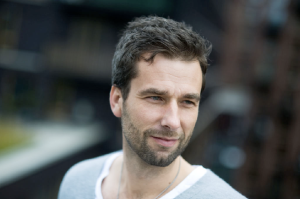 Find me at
Find me at
You must be logged in to post a comment.